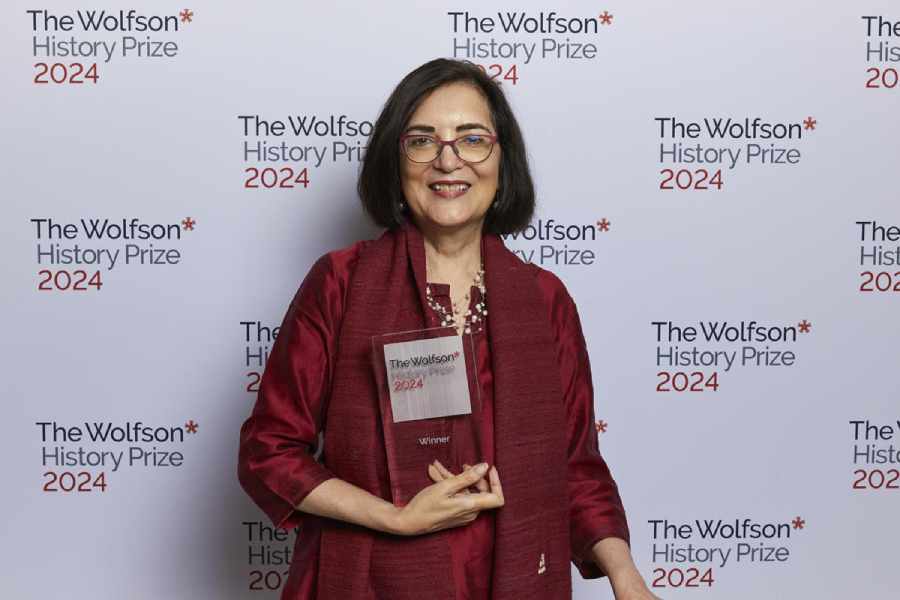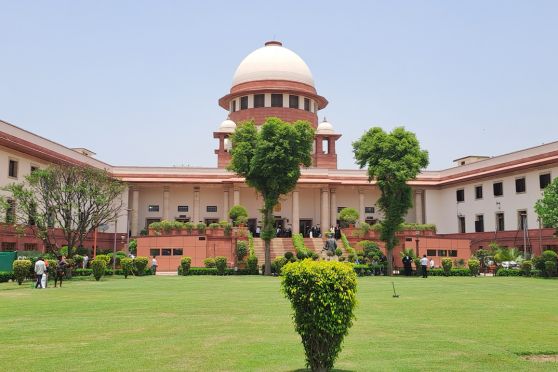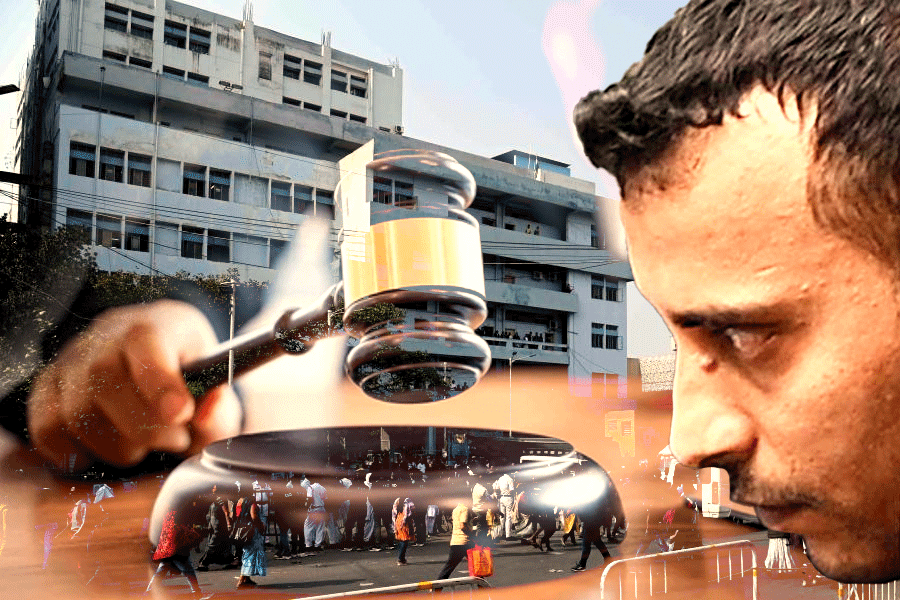Professor Joya Chatterji, whose book Shadows at Noon: The South Asian Twentieth Century won the £50,000 Wolfson History Prize earlier this month, is expected to be in Calcutta on Monday.
Chatterji, who is emeritus professor of South Asian history at Cambridge University and a Fellow of Trinity College, has long been recognised as an authority on India, Pakistan and Bangladesh but winning the Wolfson, described as “the most prestigious history writing prize in the UK”, has turned her into something of a star.
She is travelling with her husband and fellow historian Anil Seal, with whom she shares a home in Cambridge.
Chatterji, who carries her learning lightly, is particularly engaging in informal question-and-answer sessions.
Before leaving for India, she spoke to The Telegraph on everything from the role of a historian (she calls it “a dangerous profession in India”), her beloved PhD students to whom Shadows is dedicated, why she prefers to do her writing at her home in Delhi rather than in Cambridge, on how India could improve its relations with Bangladesh and her forthcoming memoir.
Chatterji, who was born in Delhi in 1964 to a Bengali father, Jognath Chatterji, and an English mother, Valerie Ann Sawyer, was commended by the Wolfson judges for weaving part of her family history into that of the subcontinent in her 842-page Shadows.
She clarified: “The most personal and awful bits (of my life) are not in Shadows. You have to be very, very brave to go there without upsetting yourself. This book is causing me so many seizures but nonetheless I’m going there. We have a complicated family and I’ve told them I’m going down this route. It’s not an easy thing at all to search for oneself in memories that one has deliberately suppressed. I’ve jumped from the frying pan into the fire.
“I have four chapters in a good enough draft to get a publisher. The rest of the chapters are written in a decent draft but will require 50 more revisions. Then there’s one new chapter to write. It’s unlike history. The quality of writing has to be so much better.”
Although Cambridge is an English idyll, she says she feels more “cerebral” at the university and “at home” at the family house she has inherited in Delhi. “I see a fabulous forest. There is one particular peacock whocomes looking for me. I hear parrots screeching. In Cambridge, I’m not able to listen to my internal rhythm. India is where I really feel at home, it unblocks me.”
There is another equally fulfilling life in Cambridge, which has given her international recognition and attracted PhD students. She sees them “face to face, that is at the heart of it. You have to establish trust and rapport. I have students from all three countries of South Asia, from America, France, Germany, Australia, Algeria, Morocco, from all over the world. They come already inspired but maybe not sure how to articulate their subject. History PhDs are basically what you can do in three years. There are many, many conversations and I learn more from them than they learn from me. They tell me about their marriages, their husbands cheating or their wives’ habits. I try to instil in them the essential importance of being humane and respectful because that’s what is needed in academia. You have to foster an atmosphere of healthy criticism”.
“If you go to a science conference, the speaker will often have stones and rocks hurled at them,” Chatterji, who is to attend an ABP group event where she will be honoured, says. “My game plan has been to try and make history less like that so that the feedback is critical but respectful. That’s what I inculcate (in my students) because they are the next generation.”
In Cambridge, she is ferried around by cab drivers, many of whom are Bangladeshis. “They know me very well because we have long conversations. I keep saying, ‘Educate your daughters.’ Sometimes, they listen to me, ‘Yes, that makes sense, what you are saying.’”
She provides a detailed analysis of India-Bangladesh relations and why she is not impressed with “the whole ghuspaithiya (infiltration)narrative”. She argues that “it is in India’s interest to make Bangladesh more prosperous, otherwise millions are going to come across — and India can’t afford that”.











